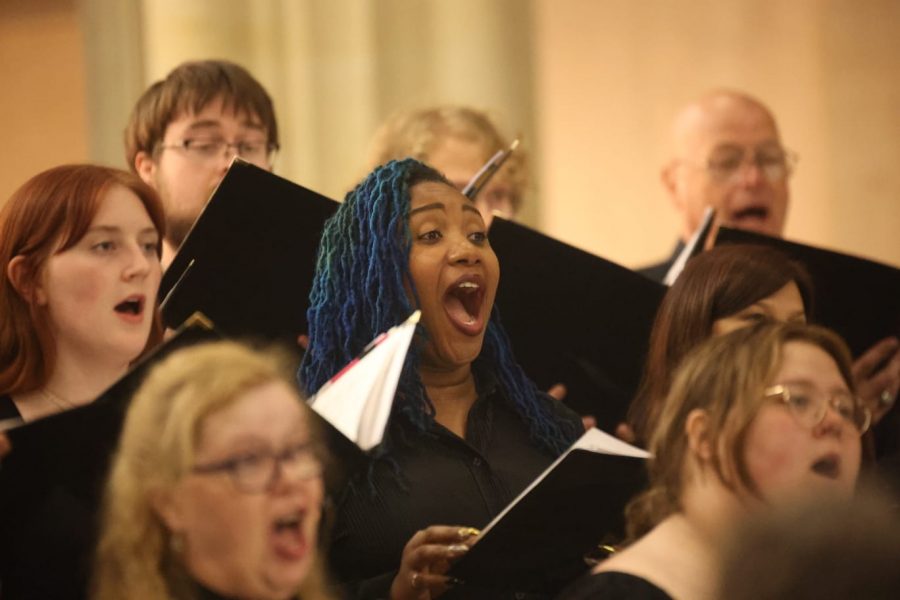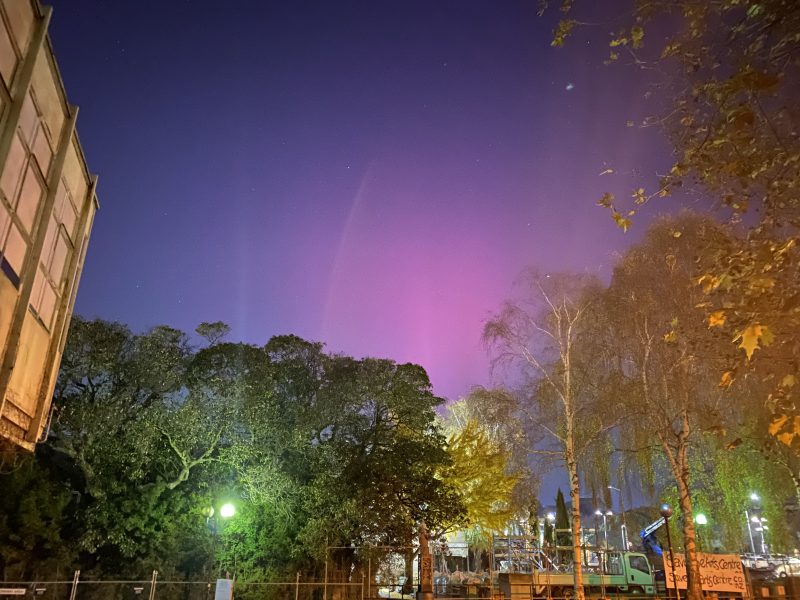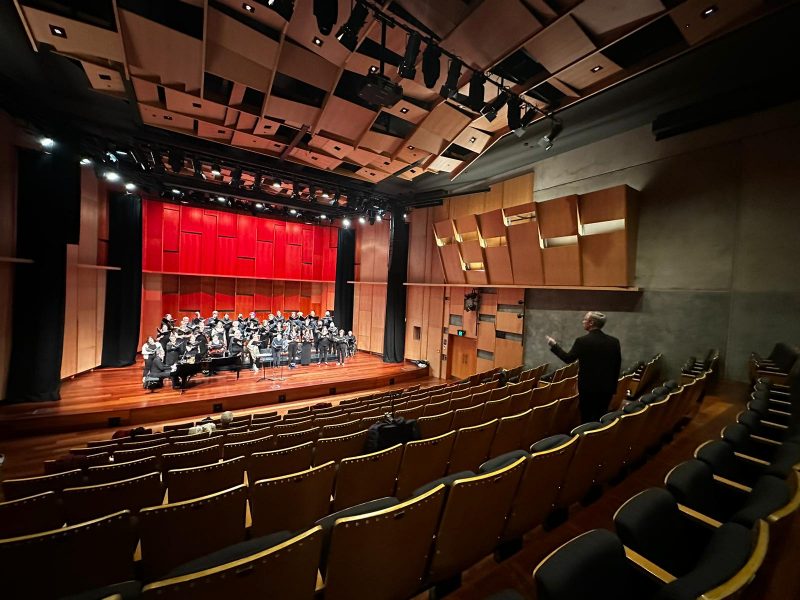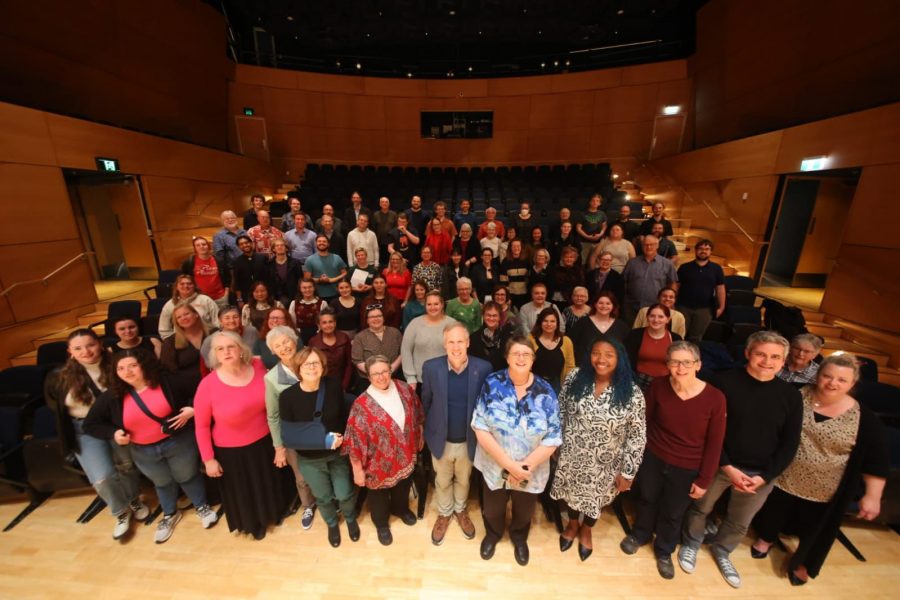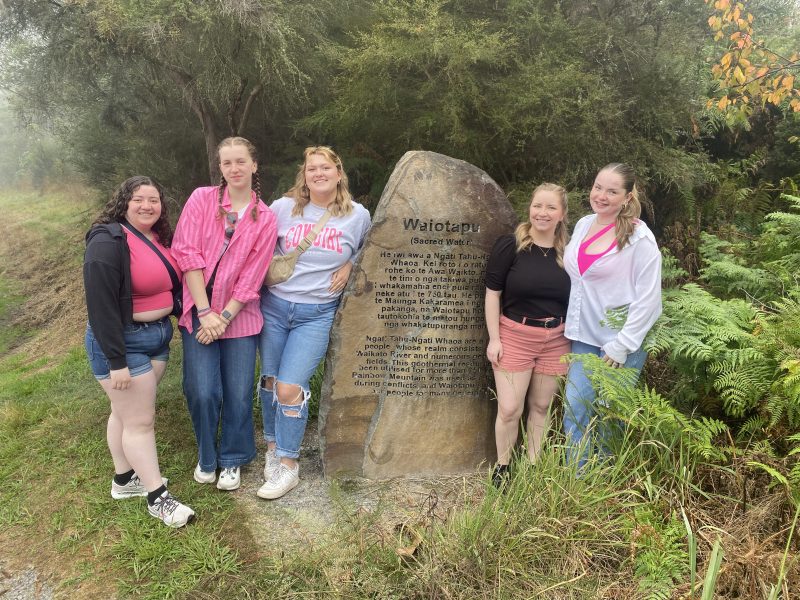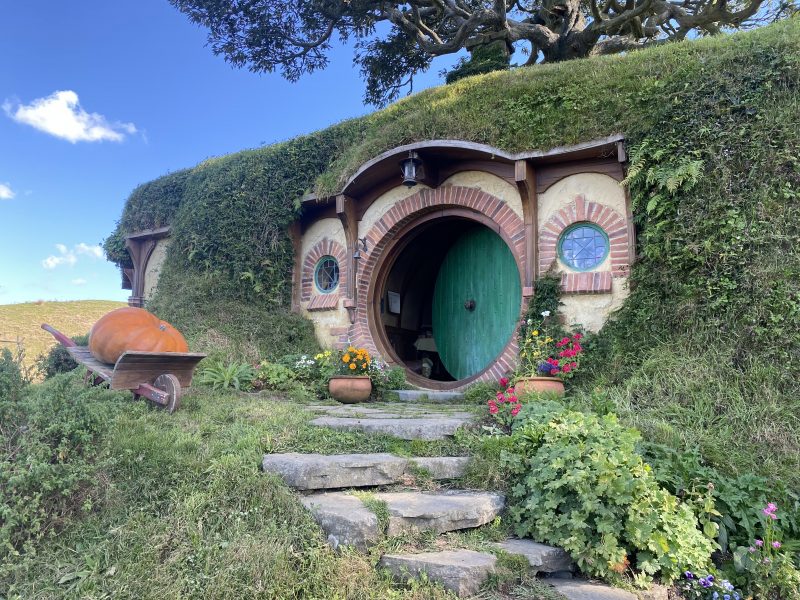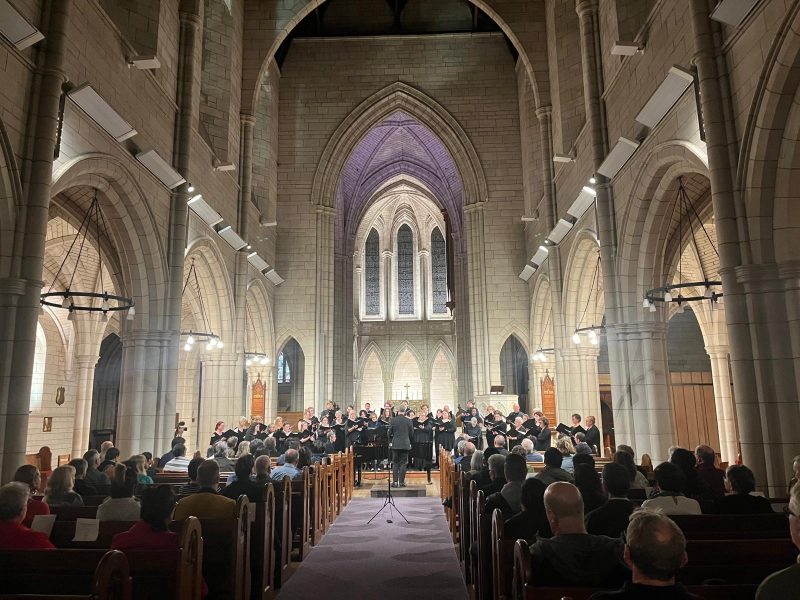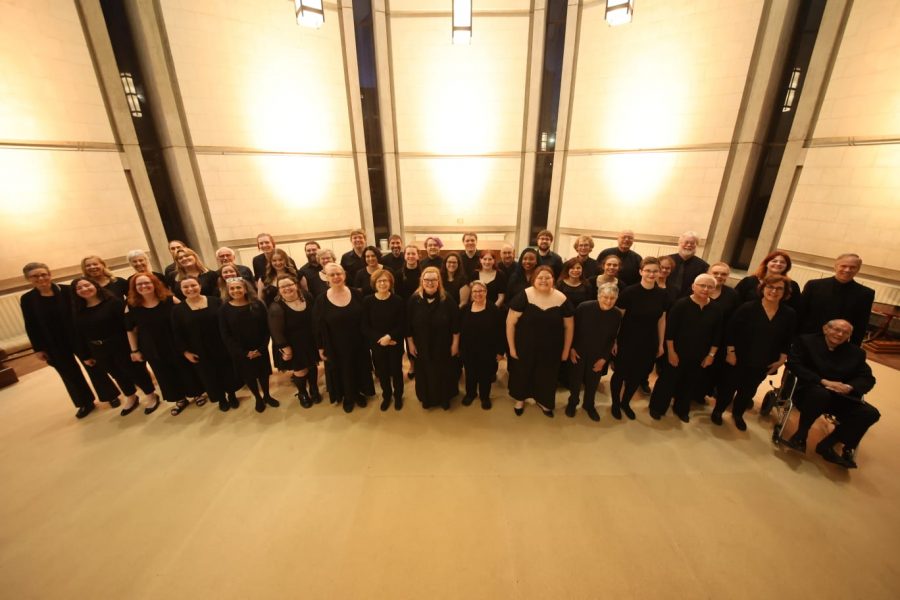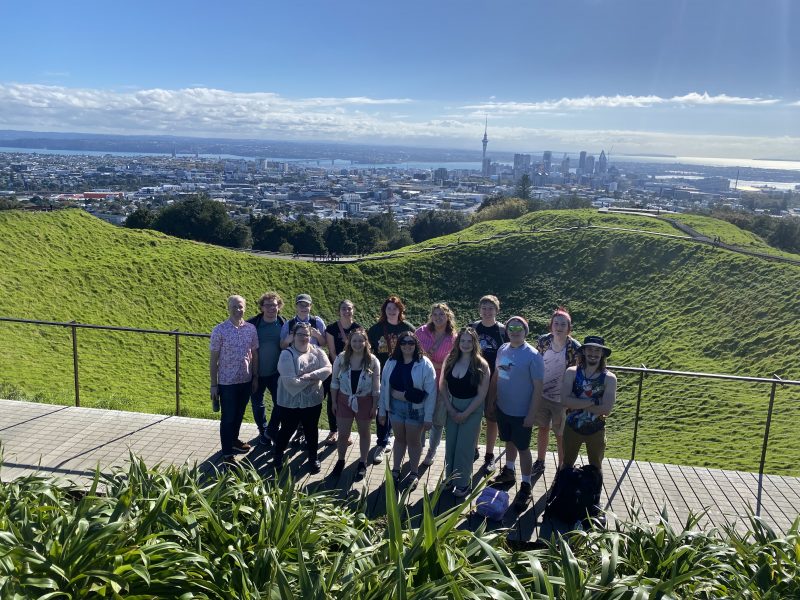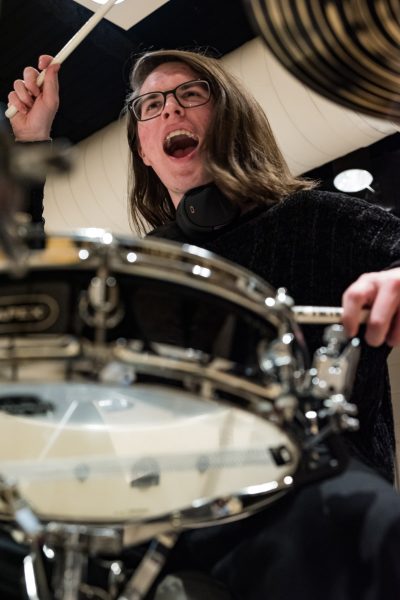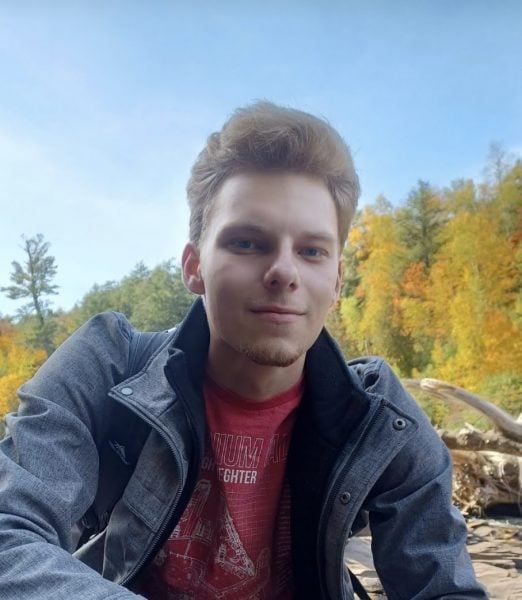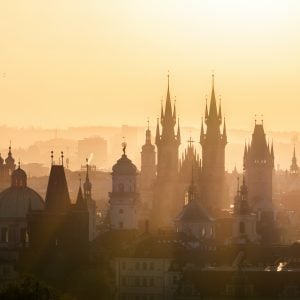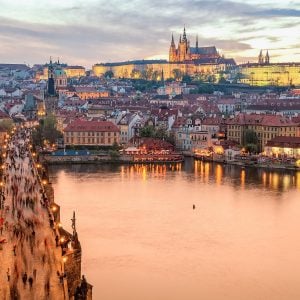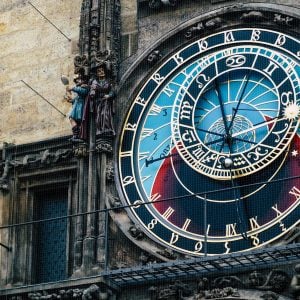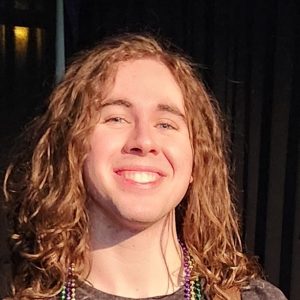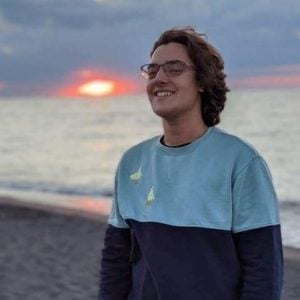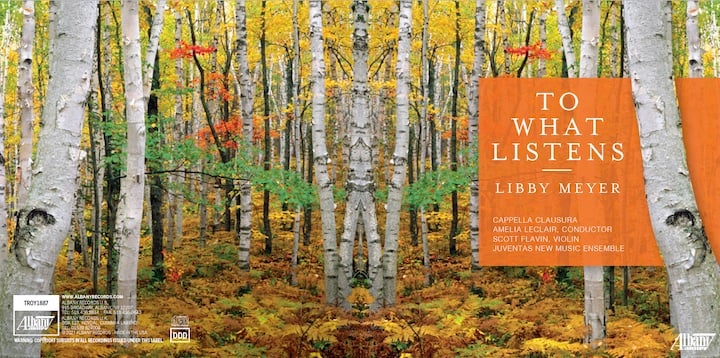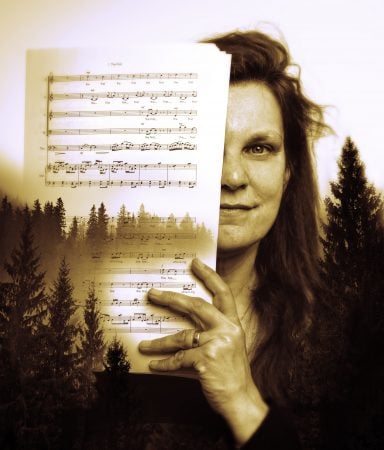Each year, excellence in Jazz is recognized by way of the Don Keranen Memorial Jazz Scholarship. Three students are chosen by their peers in recognition of improvement, excellence, and leadership. Our award winners this year include The Jazz Lab Band’s drummer Nico Chua, Trombonist from the Workshop Brass Band Ethan Deur, and Tenor Saxophonist from the R&D Jazz Band (who also plays bass in the Jazz Lab Band) Aidan Conrade.
These students all showed leadership, dedication, and excellence, this year. We are grateful for them, and wish them continued success in the coming years.
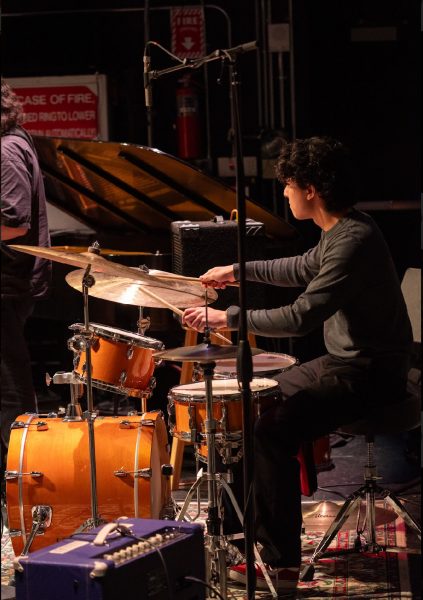
Nico is a second year mechanical engineering major. He has been playing instruments since he was very young and has played drums for over a decade now. He got into the Lab Band at Michigan Tech as a first year and continues to play in this group as well as a few groups with other Tech students.

Ethan Deur is a fifth year Human Factors major and has spent all five of those years as a part of the Workshop Brass Band. He’s been playing trombone for almost 14 years, and would love to play more in the future. Outside of music, his hobbies include playing video games and spending time with his friends.
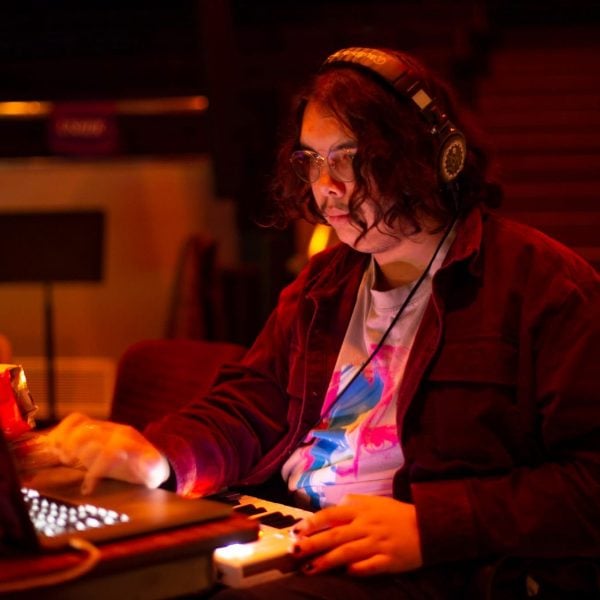
Aidan Conrade is a graduating Sound Design major with a minor in Music Composition. They have been participating in the MTU Jazz department and working on projects with the Visual and Performing Arts department for five years now. Since joining music at Tech, they have played in every ensemble in the Jazz department and have helped run the Video Game Music Ensemble, a fully student-led group of musicians who get together weekly in campus to arrange their own favorite game music to play together. In their free time, if they’re not doing something music related they are exploring the outdoors or working on creative projects!
